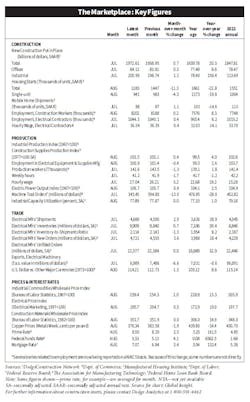Privately‐owned housing units authorized by building permits in August were at a seasonally adjusted annual rate of 1,543,000, +6.9% above the revised July rate of 1,443,000, but -2.7% below the Aug. 2022 rate of 1.6 million. According to the latest housing data from the U.S. Census Bureau, August 2022 rate of 1,586,000. Single‐family authorizations in August were at a rate of 949,000, +2% above the revised July figure of 930,000.
AIA's billings index slows down in August
The AIA/Deltek Architecture Billings Index (ABI) eased modestly in August, with a score of 48.1 points marking the eleventh consecutive month of essentially flat billings at architecture firms. Any score below 50 points indicates decreasing business conditions.
“Business conditions at architecture firms continue to be sluggish,” said Kermit Baker, AIA chief economist, in the press release. “New project work coming into architecture firms as well ongoing project activity remain stalled in a relatively narrow range and exhibit very little month-to-month variation. Through this pause has taken pressure off tight staffing conditions across the profession, there is considerable uncertainty over the direction of future activity.”
The global economy slowing, but no recession in sight according to Conference Board forecast
Global real GDP is forecasted to grow by +2.9% in 2023, slightly down from +3.3% in 2022. The Conference Board expect further slowing to +2.5% in 2024. Economic growth is moderating under the weight of still high inflation and monetary policy tightening. Rather than a global recession, the association expects a relatively subdued economic outlook over the short-term. Its forecasts for 2024 are generally strongest in emerging Asian economies, and weakest in Europe and the US.
The Conference Board said rapid monetary policy tightening over the last year or so led to weakening in global housing, bank lending and the industrial sector. However, this weakness has been more than offset by strength in other sectors, such as the service-sector.










